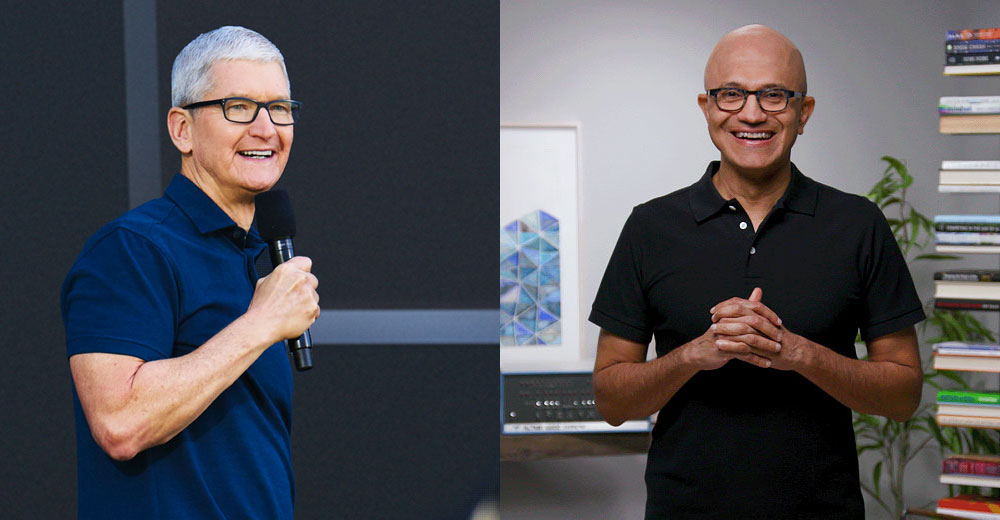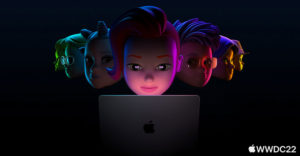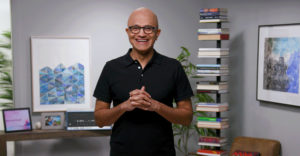During the last few weeks we’ve had two developers’ conferences. First, there was Microsoft Build, and last week was Apple’s Worldwide Developers Conference (WWDC). You’d think both events would be similar and focused on developers.
If you watch Satya Nadella’s keynote at Build, you’ll see a textbook example of how to do a developers’ conference keynote. He focuses on problems developers have, positions Microsoft’s solutions for those problems, and promotes sessions at the event that developers should attend. In contrast, Tim Cook spent only four minutes of a nearly two-hour keynote on developers. The rest of that keynote is a long ad for Apple’s products.
Don’t get me wrong, the advances in the Apple Watch alone were interesting, but for the most part, had nothing to do with developers. Apple traded off its developer focus to instead convince us to get excited about buying its new stuff. All in all, it was a relatively inexpensive (if you don’t take into account the collateral damage of not doing the keynote properly), long, and reasonably well-done commercial.
I think both approaches to the developers’ conferences showcase the strengths and weaknesses of the two companies, so I figured it would be fun to talk about those differences this week. We’ll close with my product of the week, a new Thunderbolt Dock from HP that could be ideal for those who have an Intel laptop and are splitting work between home or travel and the office.
Form Over Function vs. Function Over Form
Financially, both Apple and Microsoft are extremely successful, but they are very different companies that sell user-focused technology to different people.
Apple mostly sells to end users and is highly vertically integrated, demonstrating what is arguably the best example of the model that existed and was championed by IBM back when it was formed. But as IBM did at the time, Apple has forgotten the one critical rule of the lock-in model, which is “don’t take your customers for granted.”
However, unlike the corporate audience IBM sells to, which is generally forced to justify decisions financially, Apple sells to consumers who are more than willing to pay extra for non-tangible benefits like status. Apple still delivers status, and its lock-in model makes it incredibly difficult for an Apple customer to switch platforms. The other difference between old IBM and today’s Apple is that Apple has always been a form-over-function company.
An ad comparing the early MacBook Air and Lenovo ThinkPad illustrated this nicely:
Yes, the MacBook Air was thinner, but to get there, it had to sacrifice ports and cooling, so the processor throttled down, and you didn’t get the performance you were paying for. The Apple product left out a lot of stuff users needed, but it was prettier and amazingly light and portable.
As a company of developers, Microsoft focuses on function over form. It’s more interested in performance than superficial appearance. Its answer to MacBooks is the Surface line of products which was an attempt to emphasize design rather than capability like the ThinkPad. Most laptops are function-over-form, but the Surface line pushes attractiveness very hard.
Apple has historically invested heavily in marketing which is what convinces the consumer to favor a particular product over another. But outside of the massive Windows 95 effort, which convinced Microsoft that there could be a thing like too much marketing, Microsoft tends to underfund marketing, so its similar, and in some cases functionally better, solutions don’t get the attention of Apple products.
As a result, most Microsoft-based products tend to be less attractive but more functional than their Apple counterparts.
Apple vs. Microsoft Weaknesses
If you look at where both companies hit the wall, Apple hits it when it tries to sell to corporations that must justify their purchases and don’t, as a matter of course, buy luxury products for employees. Microsoft does fine with corporations but struggles with consumer products that require a lot more marketing and demand-generation focus than enterprise products do.
Most of Apple’s sales are through retail and Apple stores, whereas Microsoft has an impressive enterprise sales unit and sells heavily through OEMs and partners but continues to be more successful with companies than individuals.
Apple’s biggest failure in the last couple of decades was the Apple server which exposed the firm’s inability to understand the business market. Microsoft’s was Zune, which had a better overall potential solution than the iPod, but was so poorly marketed it is even a bigger stain on Microsoft’s history than Apple’s server was.
Both companies have made similar mistakes in these respective markets by treating a list of market requirements like they were optional when they clearly were not.
Microsoft seems to have accepted its strengths and weaknesses and mostly focuses on volume sales to companies and government. While Apple has tried to work with companies like IBM and Cisco to address the corporate market, it still seems unwilling to do what that market requires, so the efforts continue to fail.
What is troubling about Apple and what its WWDC displayed is that it’s becoming excessively focused on cost control. As a result, it’s mostly focused on churning products (convincing customers to replace them) instead of expanding that market.
For example, its smartphone market share, which grew sharply up until Steve Jobs left, has been mostly flat ever since at around 20 percent. I should point out that, for a luxury product, that is about twice where it should be but still well below what it typically takes to lead a market.
This is because after Jobs left, Apple seemed to step away from his heavy emphasis on demand generation, and now, to increase revenue, Apple appears to raise prices or charge excessive Apple store fees — for which several companies and governments have taken exception.
In at least one case, Apple may even owe you money. Even Elon Musk, who modeled Tesla after Apple, is taking shots at Apple’s overly aggressive focus on profits.
Microsoft was having similar issues when Steve Ballmer took over, and the market punished him by reevaluating the company when he mistakenly tried to buy Yahoo, which suggests Apple may be one mistake away from the market looking at it differently, as well.
Microsoft corrected by replacing Steve Ballmer with Satya Nadella, a product expert focused on where Microsoft was going. However, Apple has yet to make the same move since Tim Cook isn’t a product guy and is closer to Steve Ballmer than Steve Jobs or Bill Gates in terms of skills and focus.
So, in effect, Apple can’t do corporate and has cut demand generation back to the point where it can only milk customers, not expand its market. While it’s doing an incredible job of monetizing those customers, that lack of market growth is problematic in the long term because Apple doesn’t drive personal technology anymore and could be displaced catastrophically — either by a company that gets marketing or if its customers take exception to Apple’s excessive monetization.
On the other hand, Microsoft seems to have accepted its limitations and seems unlikely to take Apple’s market away because its unwilling to make another Windows 95 marketing effort to open a consumer-focused channel.
The Xbox market continues, but at a fraction of the focus, it had when it was young. Given its purpose for being was a hedge against a PlayStation PC that never emerged, its reason for being has declined, and that is Microsoft’s biggest consumer-focused offering. While less of an immediate risk to Microsoft, it is still a critical operational weakness that should be addressed if the company wants to expand in consumer markets.
Ironically, unlike the early 2000s when Apple was broadly loved, and Microsoft was being sued by everyone and their brother, those tables have turned — and that makes Apple’s issues potentially more immediate.
Samsung highlighted this a few years back when it launched an Apple-like campaign, against Apple:
Or this earlier commercial that showcased how much people sacrificed by buying an iPhone:
But Samsung isn’t a marketing-driven company and couldn’t maintain the campaign. So the gains it made while flaunting Apple’s potential weakness were fleeting. Although Samsung’s market share generally exceeds Apple’s:
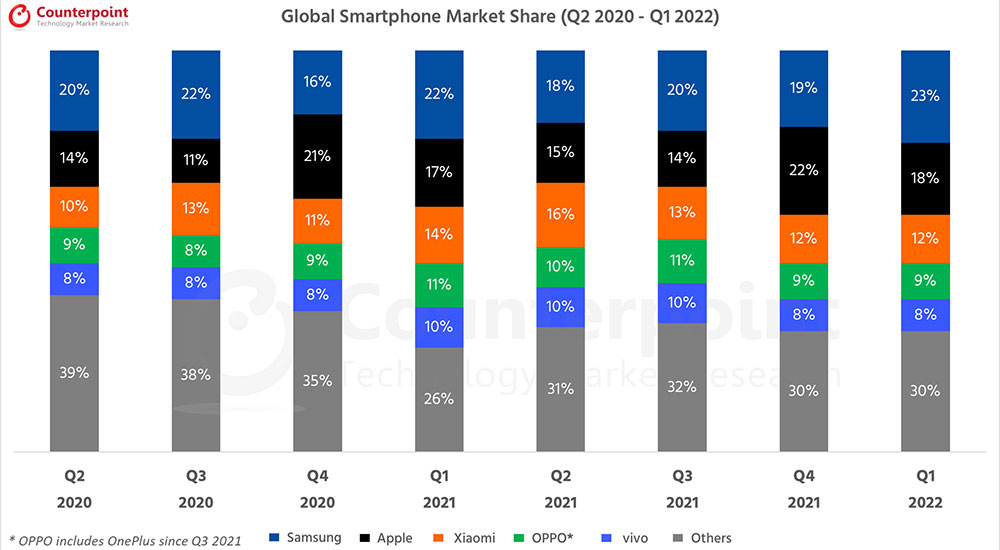
Source: Counterpoint Technology Market Research
Wrapping Up
Microsoft is a platform and tools company that clearly has, and has always had, a much deeper connection to developers. Who can forget this iconic video?
That’s passion, and it is part of Microsoft’s roots, so it created a developers’ conference for, well, developers. If it ever funded marketing like it once did, there is no telling what that company could accomplish. Yet Microsoft seems to have concluded that marketing is an avoidable cost, so it doesn’t push it, which is a shame because it has one of the best marketing executives I’ve ever met.
Apple is so focused on revenue, margins, and profits that it has reduced traditional marketing and resorts to using events like WWDC to promote its offerings. Hats off to the creativity of Apple’s marketing team, but they, too, need developers and seem to be making a choice that shouldn’t be a choice between supporting those developers and demand generation.
By the way, I think the cause of this problem is that Jobs never trained a real successor and would have been okay with Apple failing if he wasn’t there. Gates and Ballmer’s relationship was more nuanced, and Gates clearly wanted Microsoft to survive, but the result wasn’t that dissimilar.
Both Microsoft and Apple are suffering due to insufficient marketing, but given the nature of the companies, this is a far more critical issue for a consumer-focused company than one concentrated on business buyers. In the end, comparing the two firms that need developers, I’d argue that Microsoft did its job well and again showcased its love for developers, while Apple just seems to tolerate them while creatively cutting advertising expenses which are more critical to Apple, as well.
In the end, Apple is one mistake or judgment away from a catastrophe, much like Microsoft was in the early 2000s (with that Yahoo attempt being that mistake), while Microsoft is now fundamentally stronger. Though Microsoft’s growth is hampered by its underfunded marketing, Apple’s moves to defund marketing are far more serious, and its inability to see why the newer efforts failed is far more troubling.
Sometimes you get more than expected from these conferences.

HP Thunderbolt Dock 120W G4
Laptop docks have gone through a lot of changes over the years. Once large bulky things that were as much about securing the laptop against theft, over time, they have become more like plug-in expansion modules because employees really didn’t like to lock and unlock their laptops, and IT didn’t like to have to keep a spare set of keys in case the employee lost theirs.
The latest dock I have for evaluation is the HP Thunderbolt Dock 120W G4. The 120W part talks to the power it can provide to charge your laptop; HP has a more powerful 280W version for those of us with workstation-class laptops. The advantage of this new dock is like the older docking stations in that you can leave your monitor, keyboard, mouse, and other accessories plugged into it when you disconnect your laptop to leave, and only deal with one cord to reconnect when you return.
While Thunderbolt generally only works well with Intel-based laptops, the bandwidth that Thunderbolt supplies is impressive. This latest dock conforms with full NIST 800-193 requirements. It also integrates with vPro management for a better overall management experience, something IT likely cares more about than you do.
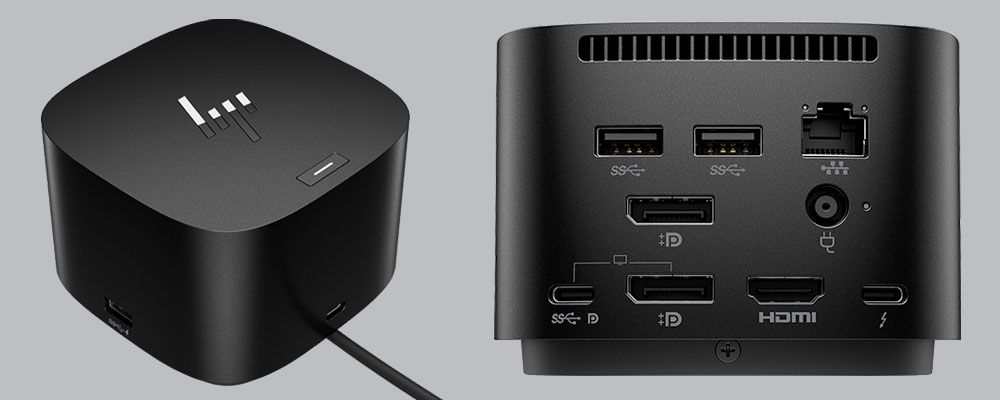
HP Thunderbolt Dock 120W G4 (Image Credit: HP)
Port out is strong, including one Thunderbolt port, four USB 3.2 ports (two each, Gen 1 and Gen 2), one HDMI 2.0, and two DisplayPort 1.4 ports, an Ethernet port (1 GB and 2.5 GB), and a USB-C port; along with a Kensington lock port that I doubt many will use but will be appreciated by those that do.
Finally, this dock supports HP’s Sure Start security, which helps ensure that it won’t become a security problem in the future. At $369, this dock isn’t a cheap date, but for those that need a high-performance solution for their mobile lives and have an HP Intel-based notebook, and use or plan to use Intel’s vPro technology, this could be just what the doctor ordered.
All this makes the HP Thunderbolt Dock 120W G4 my product of the week.

